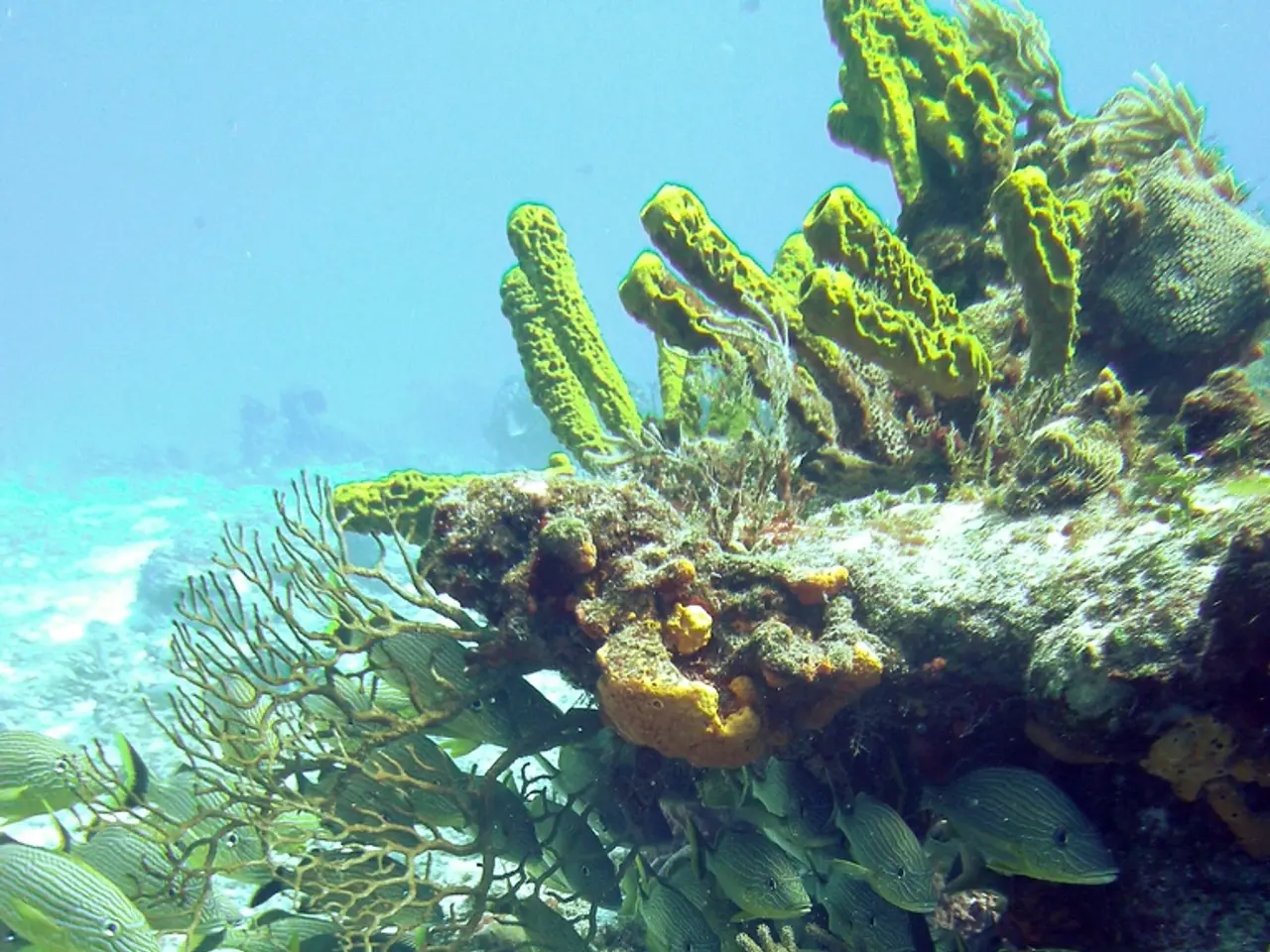Deep-sea mining applications surge as US federal agency explores prospective opportunities
The U.S. Department of the Interior (DOI) is pushing ahead with plans to develop the deep-sea mining industry in American waters. The DOI's regulatory changes aim to accelerate industry growth through shortened environmental review timelines, extended prospecting permits, and expedited permitting processes under the Bureau of Ocean Energy Management (BOEM).
These reforms are part of a Trump-era executive order prioritizing critical mineral extraction to support national security and economic interests[1][3]. Several U.S.-based companies, including Impossible Metals, Wetstone, Odyssey Marine Exploration, and The Metals Company (TMC), have shown interest in mining within U.S. exclusive economic zones (EEZ) and potentially beyond them[1][4].
The Gulf Coast region, with its deepwater ports and industrial infrastructure, is a focus for processing and supporting mining operations[2]. However, the potential impacts on marine ecosystems remain a major concern. Experts warn about the fragility of deep-sea habitats and the risks posed by mining activities to biodiversity, fisheries, and unknown underwater cultural sites[1][2].
Environmentalists worry that the rapid pace and reduced timeline for environmental reviews may lead to insufficient oversight and irreversible harm amid already stressed oceans facing pollution and acidification[1][2]. Mining companies claim they can mitigate environmental harm but acknowledge some damage is unavoidable[2].
Wetstone, a newly incorporated Delaware-based firm, has expressed interest in several seafloor areas within the US EEZ for deep-sea mineral exploration[2]. Odyssey Marine Exploration, based in Tampa, Florida, previously met with BOEM's Marine Minerals Division in January 2021 to explore the possibility of submitting an unsolicited lease sale application for an area near the Blake Plateau in the western Atlantic Ocean[2].
Transocean Ltd., a Switzerland-based US-owned company, has been in contact with BOEM since the release of Trump's executive order and has invested in two deep-sea mining companies - US-based Ocean Minerals and Belgium-based Global Sea Mineral Resources (GSR)[1]. Senior BOEM advisers met with Transocean representatives on May 7 to discuss offshore minerals, oil and gas leasing, and regulatory developments tied to the executive order on deep-sea mining[1].
It is important to note that the Outer Continental Shelf Lands Act of 1953 grants BOEM jurisdiction over an area that covers approximately 1.3 billion hectares (3.2 billion acres), but only a subset of this area has been explored for seabed critical minerals[1]. Critics have raised concerns over the fast pace at which BOEM is advancing these plans for deep-sea mining[1].
David Derrick, a staff attorney at the oceans programme of the Center for Biological Diversity, expressed concern about the speed at which BOEM is moving forward with its plans for deep-sea mining, which he believes illustrates a lack of care about protecting the marine environment[1]. Derrick stated that BOEM's policy changes have made it clear that the agency wants more applications for deep-sea mining and intends to move projects forward "with haste"[1].
BOEM critical minerals specialist Paul Knorr confirmed in an email sent the same day that such changes were underway[1]. However, it is unclear if the area where Odyssey is interested in mining has been excluded from leasing under a 2020 executive order, or if this exclusion has now been reversed[2].
In conclusion, the DOI's current deep-sea mining plans under the Trump-era directive seek to rapidly develop the industry in U.S. waters, backed by regulatory reforms to expedite permitting. However, these plans pose significant ecological risks to poorly understood deep ocean ecosystems and have sparked opposition emphasizing the need for more cautious, science-based regulation[1][2][4].
[1] Deep-sea Mining in U.S. Waters Gains Momentum
[2] Deep-sea mining: The race to the ocean floor
[3] Trump's executive order on deep-sea mining
[4] U.S. deep-sea mining: A new gold rush or environmental disaster?
- The rapid expansion of deep-sea mining under the Trump-era executive order raises concerns about its potential impact on biodiversity, as the marine ecosystems in American waters are rich and complex.
- With climate change and carbon emissions posing significant threats to the weather patterns and overall health of our oceans, the increased carbon footprint from deep-sea mining might exacerbate these issues, further jeopardizing the biodiversity.
- It's crucial for sports enthusiasts and participants alike to consider the environmental toll of industries such as deep-sea mining, as a healthy planet is essential for supporting diverse outdoor activities such as fishing, boating, and beach sports.





